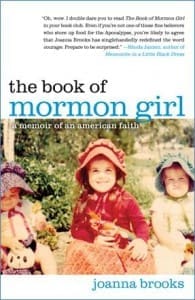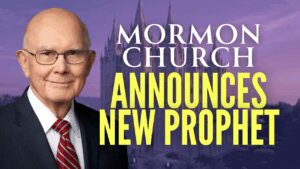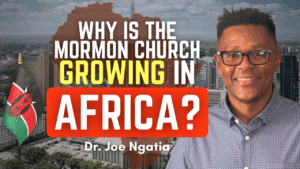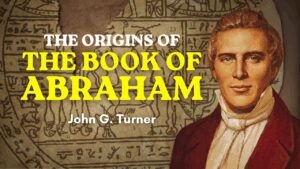
In this episode we interview Joanna Brooks – author of the newly released The Book of Mormon Girl: A Memoir of an American Faith published by Simon & Schuster. In part 1, John interviews Joanna about her book. In part 2, Joanna discusses The Book of Mormon Girl with a book group.
Joanna is the Board Chairman of Mormon Stories, has keynoted at Mormon Stories Conferences in Salt Lake City, Boston and Boise, is the author of the popular Ask Mormon Girl blog at Feminist Mormon Housewives and AskMormonGirl.com, blogs at ReligionDispatches.org and is a professor at San Diego State University. She will be featured on the Daily Show with Jon Stewart this Thursday.
In conjunction with Joanna’s podcast, we are announcing the new Mormon Stories Book Club allowing Mormon Stories community members to easily find resources to supplement the books featured on our podcast. Use the links below to find a book discussion guide, join a Facebook group where you can discuss The Book of Mormon Girl with Joanna herself, or even to schedule a time to Skype Joanna in to your local book club meeting!
The Book of Mormon Girl is a story about leaving behind the innocence of childhood belief and embracing the complications and heartbreaks that come to every adult life of faith. Joanna’s journey through her faith explores a side of the religion that is rarely put on display: its humanity, its tenderness, its humor, its internal struggles. In Joanna’s hands, the everyday experience of being a Mormon—without polygamy, without fundamentalism—unfolds in fascinating detail. With its revelations about a faith so often misunderstood and characterized by secrecy, The Book of Mormon Girl is a welcome advocate and necessary guide.
Support Mormon Stories by purchasing The Book of Mormon Girl through this link.
Book Club Resources:
Join this Facebook group to discuss The Book of Mormon Girl with Joanna and other readers
Use this guide to discuss Joanna’s book during your local book group
Skype Joanna in to your local book club discussion of The Book of Mormon Girl
Listen to Joanna’s 2010 Mormon Stories Interview
Watch Joanna on the Daily Show: Part 1, Part 2
Part 1
Part 2




18 Responses
I’m so grateful for this interview, John and Joanna. When you were talking about successful memoirs coming from people who had spent time in the margins of their groups, I couldn’t help but think of E.M. Forester’s quote about Cavafy. Standing “at a slight angle to the universe,” he observes, afforded him a “privileged perspective on humanity.” Thank you for sharing your perspective with us.
Probably the biggest take away for me from this story and John’s “Why I stay”, is that being part of the Mormon culture is more important than truth. The sense of belonging, and the support that most members offer each other has certainly been comforting over the years. However, I find that I do not need the culture to be happy, but my wife would be lost without it.
The idea that “culture is more important than truth” is one of the main messages that I’m hearing too. Maybe I could be more generous and say “belonging is more important than truth.” But then again, Joanna claims as her own some quite unique beliefs in a Heavenly Father and Mother. Apparently she navigates a space in which some of the ideas resonate with her, and she hopes that the best of these ideas are true, and isn’t so concerned about whether the whole package is true. I can sympathize with that approach, but I find it hard to internalize completely. I’m ok with not knowing the answers to things. I’m less ok with having answers taught to me as truth if they are more imagination than revelation.
Can you even contemplate the deep irony of your post? Especially your last sentence?
There’s no irony in my post. I mean just what I said. I’m someone who is ok not knowing the answers, and I’m *not* ok supporting someone whose truths come more from their own minds (imagination) than God (revelation). Given the choice between being kept in ignorance and being given feel-good teachings designed to give hope, but which aren’t based in fact, I’ll choose ignorance. This is basically an agnostic approach. Of course, knowledge based in fact is even better than ignorance or agnosticism, but knowledge is not always available in matters like this. That’s why I say that I can’t bring myself to privilege “belonging” over “truth” in the way that it appears Joanna has. I do give her the benefit of the doubt though. She’s making a leap of faith, and staking her claim in an approach that feels right to her. That’s all that any of us can do.
Or, to try to state it more clearly, Joanna seems to be at peace ignoring the inconsistencies, inaccuracies, and harmful decisions of the institutional church because, for her, the need to connect with “her people” is stronger than the need for a better-thinking, better-acting, or more truthful church.
I think we all feel the need to connect with people, to some degree or another, so in that sense I understand the underlying reason that she makes the choice to focus on belonging rather than on the church’s truth claims or the church’s treatment of unorthodox thinkers. I don’t have quite as strong of an instinct to find a connection with “my people” (the church) as she does, though, at least not if finding that connection requires me to say I believe things that I don’t believe.
In response to Mike Conder above: Mike-I get your point, but that specific phrase you used: “when the prophet speaks, the thinking is done” appeared in the Improvement Era in 1945 and was personally denounced by President George Albert Smith. I definitely think there’s a tension between blind obedience and seeking personal revelation in the church though. https://www.fairlds.org/authors/misc/when-the-prophet-speaks-is-the-thinking-done
Dallin Oaks used that same quote a few years ago when interviewed for the PBS documentary on the mormons. So, is it denounced now? Folklore? New revelation? One of these guys was only speaking as a man?
Actually, yes, Dallin Oaks was just speaking as a man and I am sure he would say so if presented with the facts.
I remember President Packer giving a talk once when he mentioned how he had run a talk he was preparing by some BYU professors. They very uncomfortably told him that the scripture he was using did not mean what he thought it did. He did not mind the correction; indeed was grateful for it.
We have to stop assuming our leaders are infallible. They have never claimed to be. In fact, they have quite clearly claimed not to be.
Why do we need apostles and prophets then if what they are saying may or may not really be inspired and we are left guessing? It’s such a contradiction to be taught to follow the prophet, he will never lead you astray yet he is fallible. It’s emotionally and mentally abusive in my opinion.
I love Joanna’s perspective. Her take on Mormonism is personal, objective, and her good humor and positive attitude make her very rewarding to listen to. I appreciate the role she is playing humanizing the face of Mormonism.
I have read her book, blog, fMh posts, NPR interview, and I was already familiar with her stories but there still was a lot of good meaty stuff in this podcast. John did a great job of extracting new ideas and asking provoking questions.
I can’t wait to see her on the Daily Show!
Joanna, I just watched your interview on the daily show. I’m a fairly conservative mormon, not conservative enough not to love the daily show but… anyway I guess I had some suspicions about you but wow, totally amazing. You rocked it! I’m in ah. Thanks for showing us all how comfortable Mormonism can be if we are open, and honest with the warts and all. It was a truly beautiful interview.
Oh and this MS interview was great too, I especially enjoyed the other women who got to ask their questions and share a little about themselves. My wife is one who struggles a lot with the pressures of perfectionism. I’m thinking she might really enjoy your book and I’m hoping she’ll be interested in reading it with me.
To Joanna–recently I have discovered and learned things that are contradictory to the church and am not sure if I should stay or go. Your story gives me hope–however, I would like to pose a question for you–I have not read the book yet, so I don’t know if the answer is in there or not–but have you been endowed in the temple and if so, how do you come to terms with being an endowed member but not fully believing in everything that comes with mormonism and still being an active member? Do you feel pressure to perform temple ceremonies and the other things that come with being an endowed member? If you don’t feel comfortable answering, I understand, I’m just trying to figure out my path as an endowed member but not a full believer anymore.
I’ve heard her say in an interview that she isn’t endowed, and having a mixed faith marriage makes that difficult.
What an amazing interview. Joanna is such a thoughtful, articulate soul. I was impressed with the way she continually acknowledged the complexities and difficulties and contradictions, even, of her faith tradition, and manages to stay resolute in her mormonism. My only concern throughout the interview was the uneasy sense i had that in personally resolving to find peace within the church as she so skillfully seems to do, that her own narrative has a tendency to flatten out of the very complexities–particularly the charged political difficulties-within the church. On questions of belonging during Prop 8, for example, Joanna likens the church to a discordant family, and yet, there are people–gay Mormons–killing themselves over the church line on homosexuality. While I loved her stance of inclusivity and her call for more seats at the proverbial Mormon table, I can’t help but worry that, politically speaking, the church stance on gays, intellectuals, feminists, may call for a harder line. How nice that she doesn’t get into the arguments–but really? I imagine that in many ways–although she says she’s scared of saying too much as a feminist for fear of another purge –(!!!)– the church may find her a really welcome and refreshing voice– intelligent, inquisitive, humanizing voice that withholds on history and culture without wielding a political critique calling for reform. Joanna’s own story has this calming effect when, perhaps, more people need to be riled up about what goes on institutionally! Her patience and trust that history will play out righteously seems so very Mormon. But in a moment where so much pain and suffering is so unneccesarry, I can’t help but worry that her diplomacy serves as to pacify potential political action and reform.
Joanna, you defend a church that you at the same time are afraid of. You don’t dare say too much since this could render excommunication.
You skipped over the hard questions about authority, priesthood, homosexuality etc. You don’t tell us how this lifestyle of yours works in a community that sunday after sunday teaches that obedience is the highest law in heaven.
In my opinion you created your own religion and pretend it goes well together with mainstream mormonism. But it doesn’t, and you know it since you’re afraid to say too much.
I really like what you say about being honest about ourselves, with flaws and all, to allow us all to be human. But if we can’t be honest in our own community, why do we want to stay in it?
I also admire your engagement in making the church a better place for everyone. You say that the future looks bright, that you see change coming. But what do you specifically mean? Will women hold leadership positions in church? Will gays be allowed to marry? Will the prophets stop emphaziseing obedience and suggest everyone do their little own thing?
Do you disregard the truthclaim the church has? The claim of exclusive authority? What about the quote from hinckley: “either JS was called of god, or he was the greatest fraud of mankind”. This shows a black and white picture that i see in the church constantly. I don’t see how you cope with that.
Very hard for me to understand how it is possible to me all that you are and and mormon at the same time…
Only speaking as someone who has similar views. I suspect it happens one day at a time through relationships and understanding. If you read her blog or her book, she addresses the very questions you raise.
In response to John’s comment about “unorthodox mormon” being an idea that you only heard starting in 2005, check out this amazing devotional talk by Hugh B. Brown:
https://president.byu.edu/documents/brown.htm
Given in 1969, Pres. Brown addresses the protests of that turbulent era. If I remember correctly, this also coincides with the inception of correlation in the church. (I have to wonder if he was in some way voicing concerns along those lines).
A favorite quote from it:
” Preserve, then, the freedom of your mind in education and in religion, and be unafraid to express your thoughts and to insist upon your right to examine every proposition. We are not so much concerned with whether your thoughts are orthodox or heterodox as we are that you shall have thoughts.”
Thought this might be helpful to some — in any case, it may give some authoritative space within mormonism to those negotiating an unorthodox path.
Another favorite part:
“Our revealed truth should leave us stricken with the knowledge of how little we really know. It should never lead to an emotional arrogance based upon a false assumption that we somehow have all the answers–that we in fact have a corner on truth, for we do not.”